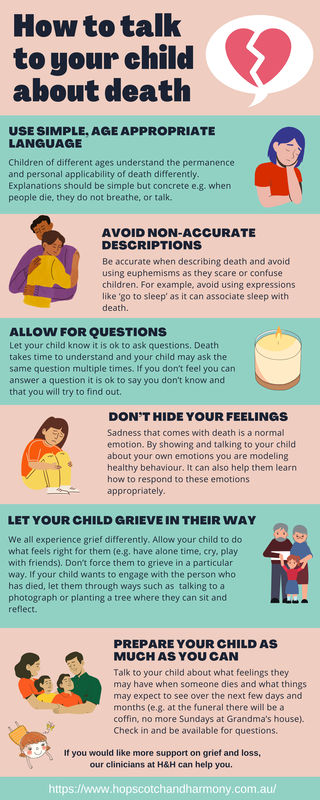|
Alyce Galea, Psychologist Emotions such as fear, anger, grief and many others can negatively affect us long after the original event that caused them.
When our body fails to “let go” of these emotions we can find ourselves with unexplained hatred, self-sabotaging behaviours, destructive beliefs, phobias and many chronic physical problems. Why Do People Bottle Up Their Emotions?
What Happens When You Pent Up Your Emotions
Ways to release bottled up emotions
Book an appointment with one of our friendly psychologists for more support Alyce Galea, Psychologist What is self-esteem?
A healthy level of self-esteem is important because it allows you to live life to your potential. Low self-esteem and poor confidence is often associated with negative thoughts about yourself, which can mean that you are likely to give up easily rather than face challenges. High Self-esteem is the satisfaction and confidence you have in yourself as a person. Low Self-esteem is the low opinion you have of yourself, the doubt, blaming behaviour and negative view of yourself. People react to your beliefs and behaviour - if you're positive about yourself then you'll get positive feedback, reinforcing your perception of your original belief. People with negative self esteem often find it hard to accept compliments, and they may see themselves as being worthless, ugly or incompetent. When trying to make friends or approach new people, those with low self-esteem may not feel worthy enough of being someone’s friend or partner. People who avoid or put off talking to new people will often find it very difficult to make friends. People with low self-esteem might also believe that they don’t deserve to be happy. Fortunately, we can change our beliefs about ourselves! Book in with one of our friendly psychologists for support in improving your self-esteem Alyce Galea, Psychologist It is essential that our young people learn how to manage the intensity of their emotions, and work through their emotions in a healthy and helpful way.
It is not something that that we are inherently born knowing how to do, so it is important that parents and/or caregivers help facilitate a safe space for children to learn emotion regulation. Here are 5 important tips to help you help your children: 1. Be warm, accepting and responsive to your child’s emotional needs
3. Accept, support and show empathy to validate their feelings
4. Be patient
5. Try not to ignore, dismiss, discourage, punish or react negatively to emotions, especially negative emotion
By being in touch with your own emotions and being mindful of how you manage them, you can be a role model for your children and help them feel safe to express their own emotions in a healthy and helpful way. For more parenting support or for support for your child, please contact the clinic to book an appointment. Alyce Galea, Psychologist It is most likely the time that most students dread...Exam time!
Although for some people, stress can motivate them to be more organised and devote more time to study, for others, prolonged stress can be counterproductive and debilitating. For a lot of students, exam time can be a daunting and stressful period, but it doesn’t have to be! Here are some tips that might help you to manage stress around exam time... 1. Think about why you are stressed:
2. Take time to plan:
3. Make self care a priority
4. Rest
5. Set good boundaries
Above all, remember that this period of stress is only temporary! If you continue to feel stress or anxious after the exams, it might be helpful to speak to someone (a teacher, family member, friend, psychologist) about what you can do to manage these feelings next exam period. Book an appointment with one of our psychologists for more support with school issues and exam stress Consider your general wellbeing as a bucket.
Whenever you experience a situation that causes stress, you pour a metaphorical glass of water into that bucket. What will happen over time if you don’t actively address those stressors and release water out of that bucket? It will overflow! So if that bucket represents our emotional health, the act of the bucket overflowing represents times where we feel overwhelmed, out of control and exhausted. Our goal is to find ways of releasing some of that stress on a regular basis, so that our bucket never overflows. If you or your child require support in managing stress or anxiety, please contact the clinic to book in with one of our friendly psychologists Did you know that the average person can have up to 60,000 thoughts in one day?!
Even without being fully aware of what we’re thinking, our brain is often going a million miles per hour. And a lot of what we think is negative, and the same worries that we had yesterday. This makes sense from an evolutionary perspective, because our ancestors needed to constantly be scanning their environments for threats and pre-empting any potential dangers. Helpful when being attacked by a sabre toothed tiger was a legitimate concern, but not so much in our day to day lives! Here are some quick tips if you find yourself worrying a lot... - try to catch yourself when you’re having a negative thought - ask yourself “Is this thought true and helpful?” and “What might happen if I choose to ignore this thought?” If you experience worry or anxiety and would like support, please contact the clinic to book an appointment with one of our psychologists You might be able to recall a time where you’ve felt...
- emotionally drained; - you’ve become more distant at work; - and you’ve started to feel like nothing you do is ever good enough. Does that sound familiar? Now, more than ever, employees are reporting high levels of burnout. You’re exhausted. We all are. I encourage you to focus on nourishing your body. Notice what it needs and respond accordingly. Think about the last week... How mindful have you been about what you have put into your body? Have you made it a priority to move your body? How kind and compassionate have you been to your body? Have you taken the time to really treat and care your body? If you are feeling burnout and require therapeutic support, we have immediate availability with for adult clients Do you know the phrase “Making a mountain out of a molehill”?
This can be all too familiar for people who experience anxiety One fleeting thought can trigger a spiral of related thoughts and worries And almost immediately what might have seemed like only a minor worry has become an overwhelming thought When you notice yourself spiralling, it can help to stop and question the thought You might want to ask yourself whether the thought is a fact, and try to find evidence to support or debunk your worry You’ll likely find that the thought is just that...a thought! If you are wanting support to manage worry or anxiety, please book an appointment with one of our friendly psychologists I recall reading this quote in an article about the importance of dealing with your emotions, and it really resonated with me
“When you’re busy trying to numb your emotions, your emotions are in the next room doing push ups” Unfortunately, uncomfortable emotions such as sadness or anger don’t magically disappear when we don’t want to feel them The longer we try to push away unwanted emotions, the stronger they might become So instead, we need to learn how to lean into the emotions, and to “feel all of the feels” We shouldn’t fear our emotions. They are all part of the human experience! Book an appointment with one of our friendly psychologists if you're wanting support to learn how to manage your emotions Often we think of trauma as only encompassing issues such as abuse, injury or disaster.
However people can experience trauma in many other ways. Consider the impact that pandemic has had on us over the past few years. I don’t know about you, but my physical and emotional wellbeing has definitely taken a hit. I know many people who have described the impact of the pandemic as a traumatic experience, the effects of which they might continue to experience for years to come. This is why it’s so important, now more than ever, to ensure that you and your family are making sure to look after yourselves Book an appointment with one of our friendly psychologists for further support For some people who experience symptoms of anxiety, it can feel like an all consuming tug of war with their own internal monster.
The monster, in this instance, represents your... - anxious thoughts - your concerns - your “worst case scenarios” How physically and mentally exhausting must it be to constantly be fighting against your own thoughts? But what might happen if you drop the rope? Imagine how freeing that would feel! When you notice yourself fighting with your thoughts, acknowledge that you’re in a battle of tug of war, and choose to let go of the rope. If you are needing support to manage your anxious thoughts, please contact our clinic to book in an appointment Sarah Kruse. Provisional Psychologist
Jessica Cleary. Director & Psychologist Sometimes it is challenging getting teens the psychological help they need. Here are some tips to help you...
Alyce Galea. Psychologist The way we communicate with others tends to fall into one of four styles: Passive, Aggressive, Passive Aggressive and Assertive. We may often adopt the one communication style in all interactions, or we communicate with different styles depending on who we are speaking with.
Let's look at the main traits of each communication style... Passive: Passive communicators have a tendency to avoid expressing their feelings or opinions, and shy away from standing up for themselves and their rights. This is often due to a fear of conflict, low confidence or anxiety about how people will respond to them. Because they don’t feel comfortable expressing themselves, they will often harbour resentment and let emotions buildup until they reach breaking point. Following an emotional outburst, they may feel shame and guilt, and return to being passive again. Aggressive: Aggressive communicators sit at the other end of the spectrum. They are very confident in expressing themselves and getting what they want, regardless of how their actions affect others. They often issue commands, are bad listeners and often lack empathy for the feelings of others. Passive Aggressive: Passive Aggressive communicators appear passive on the surface, but often express subtle or indirect aggressions. They are often aware of their needs and emotional experiences, but struggle to express them in a helpful way. Instead of openly communicating what they need or how they feel, they may instead express their grievances or annoyances through giving someone the silent treatment, spreading rumours, or making sarcastic or unhelpful remarks. These communicators often feel powerless, stuck and resentful because they are unable to effectively express themselves. Assertive: Assertive communicators are able to express their needs and feelings in a healthy and helpful way. They are empathetic and aware of how their actions may impact on someone, and are able to negotiate ways of having their needs met, without being overbearing, rude or hurting others. Assertive communicators understand that they may not get what they want all of the time, but are willing to compromise if it means having some of their needs met. When communication breaks down, it’s often because the ways we communicate and the habits we’ve formed often get in the way. We might have good intentions and an idea of how we would like to express ourselves going into a conversation with our teens, but as emotions heighten and we find ourselves feeling frustrated or impatient, what we want to say and how we want to say it might come out wrong or get misunderstood, leading to further breakdowns in our communication with them. The good news is that with practice, we can improve the way we relate and communicate with others! For more personalised support around communication and relationships in your life, please book in with one of our friendly psychologists. As complex and daunting as aggressive behaviour can appear, the way to respond can be simple and involves answering 3 questions:
1. What emotions am I (as the parent or carer) feeling right now? If we are not emotionally regulated when we respond to a child, there is a high likelihood that this will only perpetuate the situation. The child’s need remains unmet and they now also have additional stress. As the saying goes (and neuroscience attests to), ‘when we are at our angriest… we are at our stupidest’. Speaking of, when children are highly emotionally dysregulated they don’t have access to their pre-frontal cortex which is responsible for problem-solving, reasoning and perspective taking. So, asking them to ‘make a good choice’ at the height of aggressive behaviour probably isn’t going to work. We should try and emulate what we can see a duck in a pond look like; on the surface it is calm and graceful, underneath is a little more frantic but that is hidden from view. 2. How are environmental factors influencing the situation? Many times, behaviours are influenced by those observing it. Removing other children or adults can be the catalyst for de-escalation. Similarly, removing yourself partially or fully as a responder (when safe to do so) can also be what is required for de-escalation to occur. 3. What does my child feel, need or want? Behaviour is almost always a form of communication that expresses a need. Identifying and reflecting back your child’s need or feeling goes halfway to solving the problem. There is a difference between caving into unrealistic demands and simply demonstrating to your child that you can hear and understand their frustration. Children may need up to a few hours to recover and return to a baseline state. This is the time to have that conversation about what they can do to get their needs met next time in a more adaptive way. If you are seeking parenting support or support for your child, please contact the clinic to book an appointment with one of our psychologists.
By Jessica Cleary, Director & Psychologist
"Your normal may be their magic."
It's all about perspective mamas! This video is sure to pull at your heart strings as you watch vlogger Esther Anderson's moving piece of her day from the perspective of both herself and then her young daughter.
After watching, you can't help but reflect on the way you sum up your own days.
Do you hold on to the magical moments and celebrate them? Or do the frustrations leave a more lasting impression? Let this be today's challenge: Notice and hold on to the magic. Breathe in the giggles and the sillyness, the cuddles and the kisses. Breathe out the tantrums and tears, the defiance and backchat. See if it makes a difference on the way you feel. There's a good chance it will!
Sometimes it’s incredible to think about what our body can take during times of stress. We can continue to ‘soldier on’ during busy and stressful life events, while juggling work, family, friends, finances, and the list continues. Being a parent can bring about some of the most stressful times of our lives. We can find that we become exhausted, and resentful, and while juggling all of those balls, it often feels like what we are doing is just not good enough.
Most of the time, we find that we can do this OK, but ‘burning the candle at both ends’ over a prolonged period of time can have a significant and detrimental effect on our health and well-being. There are 6 specific areas of life/work that have been identified as contributing to stress and burnout. A feeling of a lack of control, and not having a say in what is going on can be created by the uncertainty or ambiguity of a situation. When your core values are in conflict with someone or with an event, this can be very stressful. This may be an increase in work demands that is impacting on family time. Feeling taken for granted or feel like you are not being appreciated can be a common feeling for all parents and can be a contributor to those feelings of resentment. With demands of home and work, it can often feel like it is impossible to prioritise. Everything seems like it is the most important task, and it can feel endless. Feeling on top of things can be even harder if you feel like there is something that is unfair about what is in front of you. Finally, if you feel like there is a breakdown of in the connection between your loved ones, it can feel incredibly stressful and isolating. As the stress continues we find that we continue to get sick. This is because our immune system is being weakened, and we are more vulnerable to illness. It also takes us longer to feel better when we are stressed. We also feel a lack of energy or fatigued. It might mean coming home from work and being unable to muster up the energy to do extra things like exercise, or hobbies that you enjoy. To help reduce the chance of burnout, it takes practise to remind ourselves to be “good enough” and not perfect. This is not always easy, and it much easier said than done, but it helps us to remember the good and positive things that we are doing and achieving, rather than the things we are not doing, or missing. Feeling gratitude is a major contributor to happiness, while perfectionism can be linked to depression and anxiety. For support in how to feel less stressed and burnt out, book in with one of our friendly psychologists How can you support your teen’s development in the age of social media?
Fostering a healthy sense of self is crucial in the work we do to support adolescents. Self-esteem refers to the judgements young people make about their worth as a person, and is closely associated with mental well-being. The way that we are communicating with peers has changed dramatically over the past decade with the growth of social media platforms such as Facebook, Instagram and TikTok. Although social media has made communication and keeping up with peers easier, it has brought about an added pressure to adolescent’s self-esteem development. It has never been easier to compare yourself to peers than it is right now. On social media, your life is on show and young people are able to create a beautiful ‘highlights reel’ which is often unrealistic and highly filtered. This in turn feeds comparison to unachievable standards and can leave you feeling like you are not good enough. Here are some conversation starters to have with your adolescents, as well as some helpful messages that we need to be sending about social media. Sit down with your adolescent and ask them: “What does it feel like when your post doesn’t get many likes?” Helpful messages to discuss:
Look at Instafamous celebrity profiles with your child and ask, “What do you think about this person’s profile? What does their life look like to you?” Helpful messages to discuss:
“How do you feel when you compare your number of ‘friends’ to other people’s number of ‘friends’?”
"What inspires you on your social media feeds?"
Helping your teens to think about their motivations behind posting up that highly filtered selfie will help them (and you) to think about healthier ways of getting validation and building self-esteem. It’s probably not going to drastically change their posting behaviour, but it might help them to see their online behaviour through a new lens. Through having this conversation, you might be able to come up with ideas about other ways to feel confident – such as learning about their strengths and building on them. This is how positive self-esteem is developed. It might even help you to reflect on whether your child has enough opportunities to experience success and develop their strengths. If not, think about how you can facilitate this by increasing their opportunities in the ‘offline’ world. Remember, social media is a big part of your teens life, so understanding more about it will help you to show your interest in your child’s life bringing you closer together which is so important for your relationship. If you have concerns about negative impacts that social media is having on your child’s self-esteem and you are unsure how to tackle this, please contact our clinic to book an appointment for you or your child. In this post, we explore how to help bring your focus back to the positive aspects of your life and how to realistically incorporate self care into your busy routine.
One way is to take regular time each day to appreciate the positive things that are happening. Write them down and reflect on them when you need the reminder. When we think of self-care, too often we think of bubble baths and date nights. While both of those things are enjoyable and relaxing, it does not have to be your visual when it comes to self-care. Saying “no” to additional demands is self-care, as is going for a walk around the block for a quiet walk. Eating a healthy meal, or an act of kindness towards another person can also be a form of self-care. Trying something new or engaging in a hobby can also be self-care. Often, we find ourselves saying that we do not have enough time to do some of these things, and our self-care can be one of the first things to drop when we experience stress. However, it is important to remember that taking care of yourself is not a selfish act, it is helping you be the best version of yourself in order to best care for your children. Having a consistent time in the day scheduled for self-care can increase the chance that it happens and can be for just 3 minutes per day to start with. Being energised and refreshed helps us parents with patience and compassion and helps us model to our children that it is ok to take time for ourselves, ask for help and deal with our stresses in healthy ways. So, when you feel the stress and negativity creeping in, remember that it is ok to stop and ask for help. Giving 100% of yourself does not have to mean working until you fall apart. Having someone to talk things through can help give you some perspective, and often just getting things out of your head can be helpful. It may be helpful for you to consider services like - Parentline (1300 30 1300) - lifeline (13 11 14) - Your GP or even the ear of a friend. If you are in need of further support, please contact the clinic to book an appointment with one of our friendly psychologists. Anxiety is one of the most common childhood disorders. Most commonly a child will experience one of the following forms of anxiety:
Some of the ways anxiety may present in your anxious child:
The good news is that anxiety can be managed through therapy to learn how to decrease those worrying thoughts, but you as a parent or caregiver can also help your anxious child by teaching them to calm down and relax their bodies and minds. One technique that you can teach to your anxious child to help them relax is Progressive Muscle Relaxation (PMR). Often when we experience worrying thoughts and events our bodies will respond with muscle tension. This tension we feel can be uncomfortable making it difficult to relax and even go to sleep at night. PMR is the process of tensing different muscle groups for a few seconds and then releasing the tension. This is done in part so that we can identify the areas that we hold the most tension and also so that we can distinguish between tension and relaxation. Here are some basics you can try to help your child using Progressive Muscle Relaxation: Preparation:
What to say: "Take some deep calming breaths in through your nose and out through your mouth... Imagine your tummy is a big balloon and when you breathe in the big balloon is filling with air, and as you breathe out, the air is slowly escaping and the balloon becomes small again. Now...squeeze your toes and feet into a tight ball... hold this... (five seconds)... now relax...let them go loose. Tighten the muscles in your legs by pointing your toes...hold the muscles tight...(wait five seconds)... now let go and feel your legs go as loose as cooked spaghetti. Let's focus on your tummy now. Tense the muscles in your tummy by squeezing it in... hold this... (wait five seconds)...now relax...notice how good your body feels. Lift your shoulders as high as you can, bringing them up to your ears...hold this... (wait five seconds)...now relax....breathe in.... and breathe out... Next you can tense your arms and hands, by stretching them forward and tightening your hands into a tight ball, like you are squeezing a lemon...hold this... (wait five seconds)...now let your arms go floppy like cooked spaghetti...notice how relaxed they feel... Let's move to your face...tense your face by scrunching up your whole face...wrinkle it up as hard as you can...hold this... (wait five seconds)...now relax. Take another deep, calming breath in through your nose and out through your mouth... When you are ready, gently open your eyes and notice how good and calm your body feels." . If you would like more support for your child, please contact one of our friendly psychologists! |
Categories
All
|
Hopscotch & HarmonyAt Hopscotch & Harmony Psychology, you can expect compassionate care and evidence-based guidance on your journey to wellness.
With clinics in Werribee and Belmont, as well as providing online counselling to clients who live throughout Australia, our dedicated team of psychologists and dietitians are committed to providing support to children, teenagers and adults. With a focus on understanding your unique needs, we offer tailored solutions to foster growth and resilience. Trust in our experience and dedication as we work together towards your well-being. Welcome to a place where healing begins and possibilities abound. |
Our services |
Contact usHopscotch & Harmony
Child, Teen and Adult Psychology Our Locations:
WERRIBEE: 1/167-179 Shaws Rd
BELMONT: 92 Roslyn Rd AUSTRALIA-WIDE: Online counselling Tel: 03 9741 5222
Fax: 03 8669 4076 Email: admin@hopscotchandharmony.com.au |
Hopscotch and Harmony respectfully recognise the Aboriginal and Torres Strait Islander people as the first Peoples of the continent now called Australia.
We acknowledge the Bunurong and Wadawurrung people of the Kulin Nation, the traditional owners of the land on which we work, and pay our respects to their Elders, past, present and emerging.
© 2024 Hopscotch and Harmony Pty Ltd























 RSS Feed
RSS Feed
